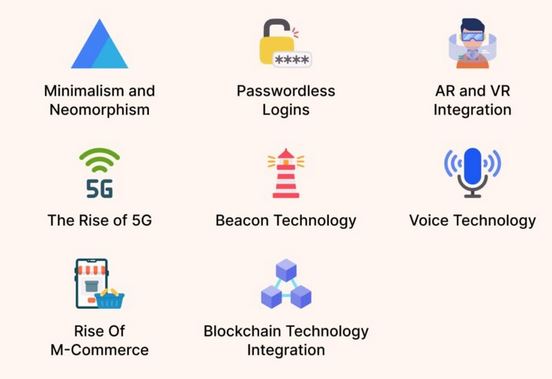
Exploring Trends in Mobile App Development
Mobile applications have become an integral part of our daily lives, offering convenience, entertainment, and functionality at our fingertips. With the rapid advancements in technology, the landscape of mobile app development is constantly evolving. Let's explore some of the latest trends shaping the future of mobile apps.
1. Artificial Intelligence and Machine Learning
AI and ML technologies are revolutionizing the way mobile apps operate. From personalized recommendations to predictive text and voice recognition, these advancements enhance user experience and streamline processes.
2. Augmented Reality (AR) and Virtual Reality (VR)
AR and VR technologies are gaining popularity in mobile app development, offering immersive experiences in gaming, education, and even shopping. Integrating AR and VR features can make apps more engaging and interactive.
3. Internet of Things (IoT)
IoT has opened up new possibilities for mobile apps by connecting various devices and enabling smart functionalities. Apps that can control smart home devices or track fitness data are becoming increasingly common.
4. Beacon Technology
Beacon technology enables location-based services, allowing apps to deliver personalized content based on the user's proximity to a physical location. This technology is being utilized in retail, tourism, and event apps.
5. Progressive Web Apps (PWAs)
PWAs combine the best of web and mobile apps, offering a seamless user experience across devices. These apps load quickly, work offline, and provide a native app-like feel without the need for installation.
6. Cloud-Based Mobile Apps
Cloud technology is transforming mobile app development by enabling data storage, processing, and synchronization across multiple devices. Cloud-based apps offer scalability, flexibility, and enhanced security.
7. Enhanced App Security
With the increasing number of cyber threats, app security has become a top priority for developers. Implementing robust security measures such as biometric authentication, encryption, and secure data storage is essential to protect user data.
8. App Development for Wearable Devices
The rise of wearable technology has created new opportunities for app developers. Creating apps for smartwatches and fitness trackers requires optimizing user interfaces for smaller screens and designing functionalities tailored to wearable devices.
9. On-Demand Apps
On-demand apps have transformed industries like transportation, food delivery, and home services. These apps provide convenience and efficiency by connecting users with services in real-time, making tasks like ordering a ride or scheduling a cleaning service seamless.
10. Cross-Platform Development
Cross-platform development frameworks like React Native and Flutter are gaining popularity among developers for building apps that can run on multiple platforms with a single codebase. This approach saves time and resources while ensuring consistent user experiences.
Embracing Innovation in Mobile App Development
As technology continues to advance, staying updated with the latest trends in mobile app development is crucial for developers and businesses looking to create cutting-edge applications. By embracing innovation and incorporating these trends into their apps, developers can deliver enhanced user experiences and stay ahead in the competitive app market.
On-the-Web Casinos: The particular Pleasure regarding Wagering in the Home




